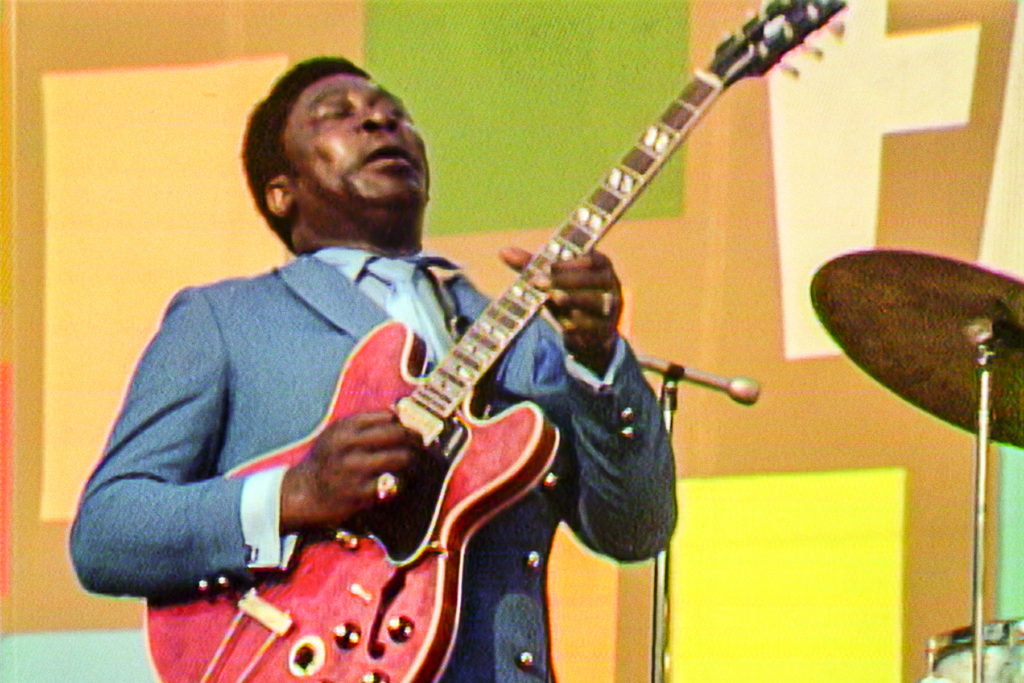Review: Summer of Soul (…Or, When the Revolution Could Not Be Televised) (2021)

A huge music festival took place in the year of 1969. No, not Woodstock, but an event some 100 miles south of it, stretching over six weekends from June to August in Mount Morris Park in Harlem. The festival was called The Harlem Culture Festival and it hosted the all-star black performers of different musical genres, varying from gospel, blues and soul to African, Latin and Caribbean tunes, to funk, progressive rock and fusion music. The list of the names was really impressive, with Stevie Wonder, Mahaila Jackson, Nina Simone, The 5th Dimension, The Staple Singers, Gladys Knight & The Pips, Sly and the Family Stone, The Chambers Brothers, B.B. King, Hugh Masekela, Mongo Santamaría being some of the performers.
The event was organised and promoted by Tony Lawrence who secured the backing of the mayor of NYC John Lindsay who was sympathetic towards the Black and Brown population of Harlem. It was filmed by the experienced TV producer and director Hal Tulchin, but only the first two-hour batch of the material was ever screened on TV. The rest of it was never shown, either because it was seen as “too black” by the heads of various TV stations in New York and the rest of the US, or because the similar, but slightly “whiter” event, Woodstock, took all the attention to itself. The material was stored by Tulchin in his basement, where it stayed for nearly 50 years.
Fortunately, the musician-journalist-aspiring filmmaker Ahmir Thompson (better known as Questlove in some circles) got a hold of it and it became the backbone of his documentary Summer of Soul (…Or, When the Revolution Could Not Be Televised). It premiered at last year’s Sundance where it won both Grand Jury Prize and Audience Award in the national documentary competition, before heading on an extended festival tour (making stops, among others, at Sheffield, Hot Docs, Ice Docs, Sarajevo, Art Film Fest and Ji.hlava), getting an internet release via Hulu and finally winning an Oscar.
Tulchin’s material consisting of concerts by different music stars may be the most attractive material here, but it is not the only footage in the film. Questlove’s approach is wider than relegating the material simply to the grade of a forgotten, then found “candy”, as he tries to explore the complete context of the event and how it never made it to the level of the American collective memory. In order to achieve that, he intersects it with “talking heads” interviews with the people from nowadays African American pop-culture (mostly music) scene who were among the attendees at the concerts back then. They are narrating their own memories of the festival, and also providing the wider historical and political context of the racially motivated turbulences of the 60s in America, including the assassinations of both John and Robert Kennedy, Malcom X and Martin Luther King Jr and the riots in American cities. They are illustrated by brief inserts of archival footage.
Some of the editing choices might feel a bit questionable (like cutting the performances off before the end), but at least Questlove’s intentions are clear: he serves the viewers with what he sees as the whole picture. For the greatest part of the film’s nearly 2-hour runtime, it works well, making Summer of Soul equally enjoyable as a historical music documentary and as a valuable history lesson.
Runtime: 118’
Directed by: Ahmir “Questlove” Thompson
Cinematography by: Shawn Peters
Editing by: Joshua L. Pearson
Music by: Ian Herbert, Randall Poster
Sound recording by: Justine Baker
Sound by: Alan Chow, Aisha Hallgren, Dennis Hamlin, Rich Mach, Mike Stahr, Emily Strong, Jimmy Douglas
Production design by: Lauren Nikrooz, Mark Thompson
Visual effects by: Mark Thompson
Colourist: Yohance Brown
Second unit director: Joseph Patel
Produced by: David Dinerstein, Robert Fyvolent, Joseph Patel
Executive producers: Jen Isaacson, Jon Kamen, Dave Sirulnick, Jody Allen, Ruth Johnston, Rocky Collins, Jannat Gargi, Beth Hubbard, Davis Guggenheim, Laurene Powell Jobs, Jeffrey Lurie, Marie Therese Guirgis, David Barse, Ron Eisenberg, Sheila Johnson, Ahmir “Questlove” Thompson
Production companies: Vulcan Productions, Concordia Studio, Play/Action Pictures, LarryBilly Productions, Mass Distraction Media, RadicalMedia
Sales by: Cinetic Media
















